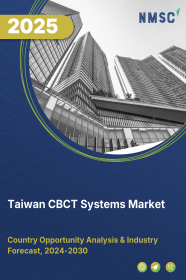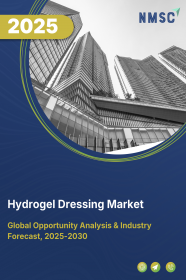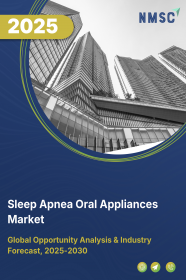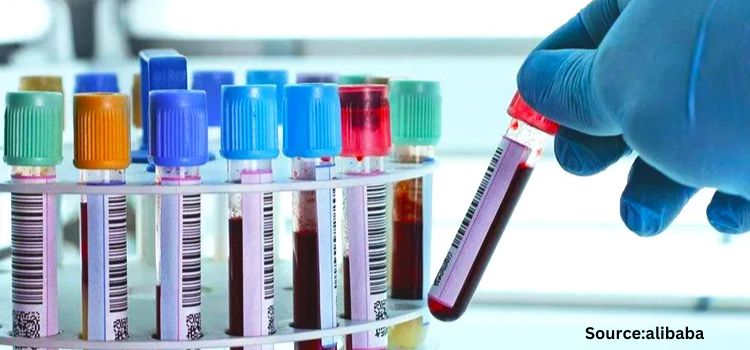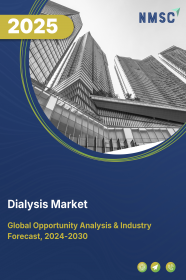
Dialysis Market by Type (Hemodialysis (HD), and Peritoneal Dialysis (PD)), by Offering (Product, and Services), and by End User (Hospitals, Dialysis Centers, Homecare, and Ambulatory Surgical Centers) – Global Opportunity Analysis and Industry Forecast, 2024–2030
Industry: Healthcare | Publish Date: 26-Mar-2025 | No of Pages: 330 | No. of Tables: 260 | No. of Figures: 185 | Format: PDF | Report Code : HC45
US Tariff Impact on Dialysis Market
Trump Tariffs Are Reshaping Global Business
Market Overview
The global Dialysis Market size was valued at USD 111.74 billion in 2023 and is predicted to reach USD 145.07 billion by 2030, with a CAGR of 3.80% from 2024 to 2030. Dialysis refers to the global healthcare sector focused on the provision of artificial kidney functions to individuals suffering from impaired renal function.
Dialysis is a life-sustaining medical procedure employed to manage patients with end-stage renal disease (ESRD) or acute kidney injuries. This market encompasses a spectrum of products and services, including hemodialysis and peritoneal dialysis equipment, dialysis consumables, and associated pharmaceuticals. With the rising prevalence of kidney-related disorders and the increasing aging population globally, the dialysis market plays a critical role in delivering essential renal care, aiming to enhance patients' quality of life and improve overall healthcare outcomes.
The Surge in Chronic Kidney Disease (CKD) Driving Force Behind the Expansion of the Dialysis Market
The rising incidence of Chronic Kidney Disease (CKD) is a principal catalyst propelling the expansion of the dialysis market. The rising prevalence of predisposing conditions such as diabetes and hypertension, has significantly contributed to the surge in CKD cases worldwide. As these risk factors become more pervasive in contemporary lifestyles, a larger segment of the population is predisposed to kidney dysfunction, necessitating the need for renal replacement therapies that include dialysis. Delayed diagnosis and the increasing burden of non-communicable diseases, coupled with lifestyle-related contributors to CKD, have collectively elevated the number of individuals requiring immediate intervention through dialysis. Improved diagnostic capabilities and heightened patient awareness have also played pivotal roles in the early identification of CKD cases, prompting timely therapeutic measures, including the widespread adoption of dialysis. In this landscape, the dialysis market emerges as an indispensable cornerstone in addressing the mounting healthcare challenges posed by the growing incidence of CKD.
The Surging Old-Age Population is Fueling the Market Growth
The growth of the dialysis market is significantly propelled by the aging population, which presents a multifaceted impact on the prevalence and management of kidney-related disorders. According to the latest report published by the World Health Organization in 2022, the number of people above 60 reached 1.4 billion in 2020, which is anticipated to reach 2.1 billion by 2050. As individuals age, the heightened risk of chronic conditions such as diabetes and hypertension contributes to an increased incidence of Chronic Kidney Disease (CKD).
Moreover, the natural decline in kidney function associated with aging necessitates therapeutic interventions, with dialysis emerging as a critical lifeline for those experiencing significant renal decline. The prevalence of comorbidities in older individuals further accentuates the demand for renal replacement therapies, positioning dialysis as a vital treatment method. The growing number of elderly individuals reaching the advanced stage of End-Stage Renal Disease (ESRD) underscores the essential role of dialysis in managing complex health challenges.
Additionally, as advancements in healthcare extend life expectancy, a larger demographic is living longer with chronic conditions, fostering a sustained demand for dialysis services. In essence, the aging population, with its increased vulnerability to kidney-related issues, is a key driver shaping the expanding landscape of the dialysis market.
Limited awareness among individuals restraint the market growth
The limited awareness among the general population regarding kidney diseases is a significant impediment to the growth of the dialysis market. Insufficient knowledge about the early signs, risk factors, and preventive measures related to chronic kidney disease (CKD) contributes to delayed diagnoses and a lack of proactive healthcare-seeking behavior. Without a widespread understanding of the importance of regular kidney screenings and the potential efficacy of dialysis in managing renal conditions, individuals may overlook or underestimate the severity of their kidney health.
The lack of awareness not only results in delayed initiation of dialysis treatment but also hampers the overall demand for dialysis services. Bridging this awareness gap through targeted education campaigns and community outreach initiatives is imperative to enhance early detection, encourage timely intervention, and ultimately drive the growth of the dialysis market by ensuring that individuals are well-informed about the available treatment options for kidney-related disorders.
The introduction of wearable and portable dialysis devices creates future opportunity
The emergence of wearable and portable dialysis devices stands as a groundbreaking advancement in dialysis technology, offering a transformative opportunity for the dialysis market. These compact systems, resembling small backpacks, empower patients with unprecedented mobility and flexibility in their treatment schedules.
For instance, AWAK Technologies (AWAK), an innovative medical technology firm specializing in dialysis using regenerative technology for end-stage renal disease, revealed that the U.S. Food and Drug Administration (FDA) conferred the breakthrough device designation upon its AWAK Peritoneal Dialysis (AWAK PD) device. This device, which is both wearable and highly portable, incorporates AWAK's patented sorbent technology. As technology continues to advance, we can anticipate further innovations in dialysis technology, ultimately leading to even better outcomes for patients.
North America dominates the dialysis market
The prevalence of chronic kidney disease (CKD) is on the rise in the region, attributed to factors such as high incidence of diabetes and hypertension. This escalating CKD prevalence contributes to an increased demand for dialysis services. According to the Centre for Disease Control and Prevention, more than 14% of the U.S. population, equivalent to an estimated 35.5 million individuals, are affected by chronic kidney disease.
In addition, the growing advancement in the region by organizations investing in research and development, clinical trials, and strategic collaborations further catalyzes the dynamism of the North America dialysis market. These concerted efforts foster the introduction of cutting-edge technologies, novel therapies, and treatment modalities, contributing significantly to the expansion and improvement of dialysis services.
The collaborative initiatives and research endeavors enhance the overall efficacy of dialysis treatments, ensuring that the North American market remains at the forefront of innovation, addressing the evolving needs of patients with kidney-related disorders. This commitment to progress strengthens the region's position as a key driver in the global dialysis market landscape.
For instance, KidneyX represents a public-private partnership between the American Society of Nephrology (ASN) and the U.S. Department of Health and Human Services (HHS). The partnership launched a prototype based on an artificial kidney. The project combined the two essential parts of its artificial kidney, the hemofilter and the bioreactor, and successfully implanted the smartphone-sized device for preclinical evaluation. Thus, the ongoing efforts to develop artificial kidneys hold tremendous promise in revolutionizing the treatment of kidney-related conditions.
Asia-Pacific is expected to show steady growth in the dialysis market
Asia-Pacific is expected to witness an increase in demand for dialysis services, primarily driven by its rapidly growing aging population. The demographic shift towards an older population in the region contributes significantly to the rising prevalence of chronic kidney disease (CKD) and other kidney-related disorders. As individuals age, the incidence of kidney dysfunction tends to increase, leading to a greater demand for renal replacement therapies that include dialysis. The expanding elderly demographic, coupled with lifestyle changes and a higher prevalence of conditions such as diabetes and hypertension, amplifies the need for effective and accessible dialysis treatments.
The Asia-Pacific region is poised to experience a surge in demand for dialysis services as healthcare systems strive to address the specific healthcare requirements of the aging population, thereby shaping the growth trajectory of the dialysis market in the region. According to the National Library of Medicine, the proportion of individuals aged 60 years and above in China is projected to rise from 12.4% (168 million) to 28% (402 million) by 2040.
Competitive Landscape
Several market players operating in the dialysis industry include Fresenius Medical Care AG & Co. KGaA, DaVita Inc., Baxter International Inc., U.S. Renal Care, Inc., Diaverum Deutschland GmbH, Nipro Corporation, Shandong Weigao Blood Purification Products Co., Ltd., B. Braun Holding GmbH & Co. KG, Asahi Kasei Corporation, Becton, Dickinson and Company, Nikkiso Co. Ltd., Toray Medical Co,.Ltd., Outset Medical, Inc., Satellite Healthcare, Terumo Corporation,JMS Co. Ltd., SB-KAWASUMI LABORATORIES, INC., W. L. Gore & Associates, Inc., Quanta Dialysis Technologies Ltd., AngioDynamics, Inc., and others are provided in the dialysis market report.
For instance, in April 2023, Medtronic plc and DaVita Inc. unveiled Mozarc Medical, a new independent company dedicated to transforming kidney health through patient-centric technology solutions. Mozarc Medical aims to pioneer innovative kidney health technologies that enhance the overall patient experience and promote global access to care.
In addition, in August 2022, Fresenius Medical Care North America's Renal Therapies Group introduced Speedswap, an innovative option for the NxStage System One with NxView. This technology allows for the replacement of a flow-compromised dialysis filter without changing the entire cartridge, aiming to minimize therapy downtime, streamline nursing tasks, and cut treatment costs in acute care settings.
Moreover, in June 2021, Baxter International Inc. introduced Sharesource Analytics 1.0, a cutting-edge digital health solution for home-based peritoneal dialysis (PD) patients. This clinical management resource, part of the Sharesource platform, offers healthcare professionals a simplified dashboard with trend data from patients' home dialysis treatments.
Dialysis Market Key Segments:
By Type
-
Hemodialysis (HD)
-
In-center HD
-
Home HD
-
-
Peritoneal Dialysis (PD)
-
Continuous Ambulatory Peritoneal Dialysis (CAPD)
-
Continuous Cyclic Peritoneal Dialysis (CCPD)
-
By Offering
-
Product
-
Equipment
-
Dialysis Machines
-
Dialyzers
-
Bloodlines
-
Other Equipment
-
-
Consumables
-
Dialysis Fluids
-
Catheters
-
Dialysis Access Devices
-
Other Consumables
-
-
-
Services
-
Dialysis Treatment Services
-
Maintenance And Support Services
-
By End-User
-
Hospitals
-
Dialysis Centers
-
Homecare
-
Ambulatory Surgical Centers
By Region
-
North America
-
The U.S.
-
Canada
-
Mexico
-
-
Europe
-
UK
-
Germany
-
Spain
-
France
-
Italy
-
Rest of Europe
-
-
Asia-Pacific
-
China
-
India
-
Japan
-
Australia
-
Taiwan
-
South Korea
-
Rest of Asia-Pacific
-
-
Rest of the World (RoW)
-
Saudi Arabia
-
South Africa
-
Brazil
-
Remaining Countries
-
Key Players:
-
Fresenius Medical Care AG & Co. KGaA
-
DaVita Inc.
-
Baxter International Inc.
-
U.S. Renal Care, Inc.
-
Diaverum Deutschland GmbH
-
Nipro Corporation
-
Shandong Weigao Blood Purification Products Co., Ltd.
-
B. Braun Holding GmbH & Co. KG
-
Asahi Kasei Corporation
-
Becton, Dickinson and Company
-
Nikkiso Co. Ltd.
-
Toray Medical Co,.Ltd.
-
Outset Medical, Inc.
-
Satellite Healthcare
-
Terumo Corporation
-
JMS Co. Ltd.
-
SB-KAWASUMI LABORATORIES, INC.
-
W. L. Gore & Associates, Inc.
-
Quanta Dialysis Technologies Ltd.
-
AngioDynamics, Inc.
REPORT SCOPE AND SEGMENTATION:
|
Parameters |
Details |
|
Market Size in 2023 |
USD 111.74 Billion |
|
Revenue Forecast in 2030 |
USD 145.07 Billion |
|
Growth Rate |
CAGR of 3.80% from 2024 to 2030 |
|
Analysis Period |
2023–2030 |
|
Base Year Considered |
2023 |
|
Forecast Period |
2024–2030 |
|
Market Size Estimation |
Billion (USD) |
|
Growth Factors |
The surge in CKD is driving force behind the expansion of the dialysis market Surging old aged population is fueling the market. |
|
Countries Covered |
18 |
|
Companies Profiled |
20 |
|
Market Share |
Available for 10 companies |
|
Customization Scope |
Free customization (equivalent up to 80 working hours of analysts) after purchase. Addition or alteration to country, regional, and segment scope. |
|
Pricing and Purchase Options |
Avail customized purchase options to meet your exact research needs. |

















 Speak to Our Analyst
Speak to Our Analyst



